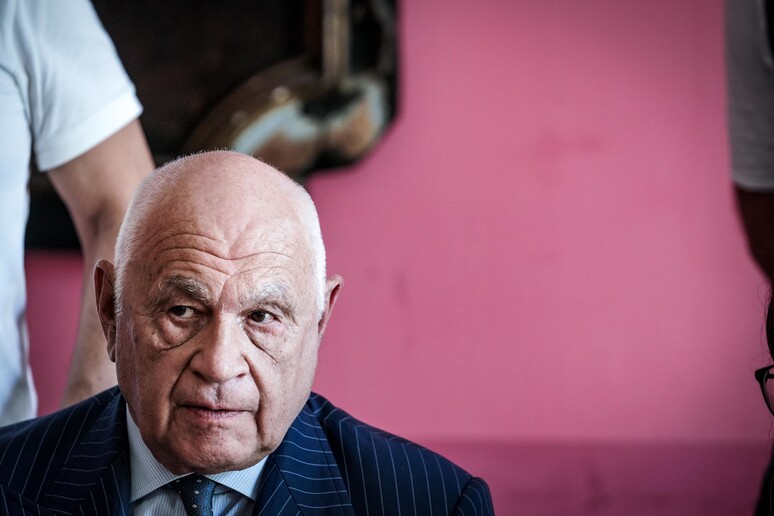A system of detention that
differentiates between prisoners who are considered very
dangerous and those thought to pose a low risk to society and
use of disused military barracks are the answer to Italy's
prison emergency, Justice Minister Carlo Nordio said on Saturday
after two deaths at a Turin jail put the poor conditions and
notorious overcrowding in Italy's detention facilities back in
the spotlight.
"There is an intermediate situation that can be resolved by
using disused barracks that have less afflictive spaces," Nordio
told reporters during a visit to the Lorusso and Cotugno prison,
commonly known as Le Vallette, in the Piedmont regional capital
after two female inmates died there on Friday.
One, a 43-year-old Nigerian woman, died after refusing food,
water or medication for 18 days.
She had reportedly been asking insistently to be able to see her
young son.
The other, an Italian, committed suicide by hanging herself in
her cell.
"Disused barracks have spaces that allow for the two great
correctives to the afflictive aspect of punishment: outdoor work
and sports activities," Nordio continued.
"The constitutional orientation is prisoners' rehabilitation,
which cannot be done if you have cramped spaces, if there is
intolerable overcrowding and a shortage of staff," he explained.
"Building new prisons is very expensive, it is impossible in
terms of the timeframe, (and) there are hydrogeological,
architectural, bureaucratic constraints," continued the
minister.
"With much less money we can readapt state property belonging to
the ministry of defence that is perfectly compatible with prison
security" he said.
"In my opinion, this is the solution that we need to start
working on, and we are working on it with results that I hope
will be forthcoming soon," said Nordio.
However human rights association Antigone said on Saturday there
is no need for new prison spaces, but rather for alternative
measures and adequate personnel.
"Once again, it should be reiterated that we do not need more
prisons, but we need prisons full of activities and attention
for the detained people," said Antigone president Patrizio
Gonnella, shortly before a 44-year-old prisoner from Lamezia
Terme near Catanzaro arrested in an anti-drugs operation in
February was reported to have been found dead in his cell at
Rossano jail in Calabria.
Sources said the man was believed to have taken his own life.
"Today in all facilities there are staff shortages: from
directors, to prison officers, educators, doctors,
psychologists, psychiatrists, cultural mediators," continued
Gonnella.
"Consequently, those on duty struggle and the detainees cannot
receive the attention they require and in the timeframe they
deserve," he insisted.
In addition, Gonnella said existing places could be freed up
"through greater recourse to alternative measures to detention".
"Today there are about 8,000 people in prison with a residual
sentence that could be served outside jail," he said.
On Friday, Antigone said Italy's system ran at around 121% over
its capacity, with 10,000 more detainees than there are places.
"Overcrowding not only detracts from living space, but also
opportunities for work and activities that break the monotony of
prison life," said the association, adding that "that monotony
leads to the emergence of situations of severe depression, which
is at the root of an increase in suicides and acts of self-harm
during the summer period".
There have already been 42 suicides in Italian jails in 2023,
with 15 since June.
"It is no coincidence that the number of suicides increases
during the summer months", given that "the heat is one of the
factors that has the greatest impact on the quality of life in
penitentiary institutions", said Antigone.
The situation is compounded by "the suspension of many
activities and therefore a situation of further and substantial
isolation", it added.
ALL RIGHTS RESERVED © Copyright ANSA











